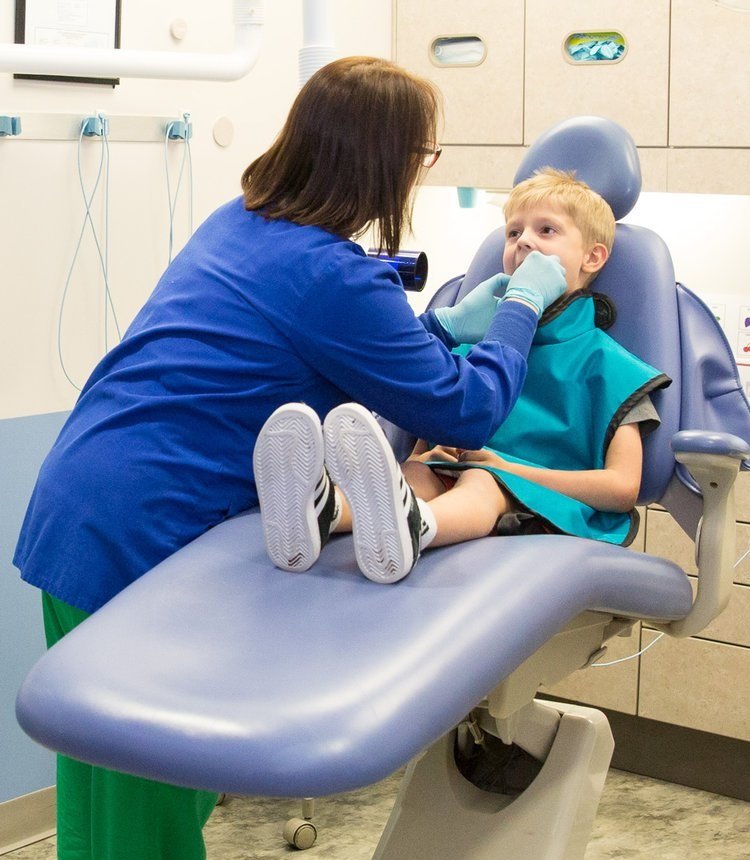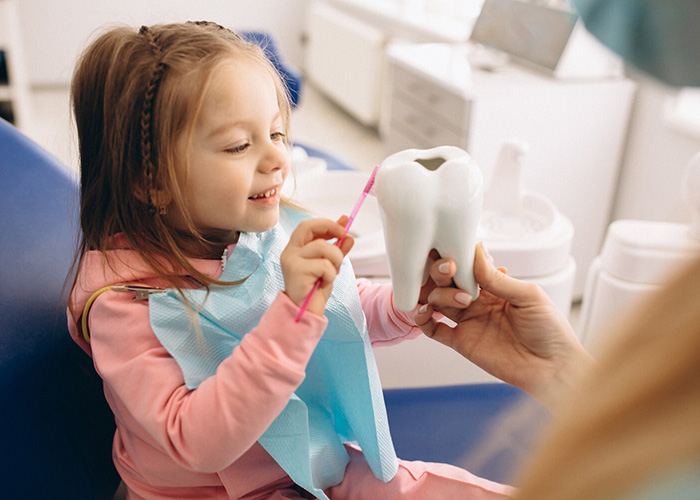Experienced Kids Dentist for Gentle and Effective Dental Treatment
Experienced Kids Dentist for Gentle and Effective Dental Treatment
Blog Article
Pediatric Dental Emergencies: What Parents Required to Know for Quick and Effective Treatment
In the world of pediatric medical care, dental emergency situations can develop suddenly, leaving parents uncertain of exactly how to manage the situation successfully. Comprehending the signs, sorts of injuries, and immediate actions to take can make a substantial difference in the outcome for a youngster's oral health. With a fast and suitable feedback, moms and dads can mitigate potential long-lasting repercussions and guarantee their youngster receives the needed care immediately. By being prepared and notified, parents can play an essential duty in protecting their youngster's dental well-being.
Indicators of Pediatric Dental Emergencies
When examining pediatric oral emergencies, it is critical for parents to be alert for certain indications showing prospective major concerns. One of the key indications of an oral emergency in youngsters is persistent tooth discomfort that is not alleviated by over-the-counter pain medications.

Usual Kinds Of Dental Injuries
Typical kinds of dental injuries in kids frequently result from mishaps or sports-related tasks that can cause numerous types of injury to the mouth and teeth. One common dental injury is a broken tooth, which can vary from a minor chip to an extra extreme break involving the internal layers of the tooth. An additional regular injury is a knocked-out tooth, where immediate action is critical to enhance the opportunities of conserving the tooth. Youngsters might also experience dental injuries like tooth invasion, where the tooth is pushed right into the jawbone, or avulsion, which is the complete displacement of a tooth from its socket. In addition, oral injuries can include luxation, where the tooth is displaced however not totally knocked out, or soft tissue injuries to the periodontals, lips, or tongue. It is crucial for moms and dads to be knowledgeable about these typical kinds of dental injuries to provide timely and ideal treatment in situation of emergencies.
Immediate First Help Actions
Upon experiencing a pediatric oral emergency, swift and suitable emergency treatment steps are vital to minimize pain and avoid further complications. For a knocked-out tooth, instruct the kid to carefully rinse the tooth with water, trying not to touch the origin, and area it back in the outlet when redirected here possible. If re-implantation is not feasible, store the tooth in a container of milk or the youngster's saliva up until getting to the dental professional. In cases of a damaged or view publisher site cracked tooth, wash the mouth with warm water and use a cool compress to reduce swelling. A bitten lip or tongue need to be cleaned up delicately with water, and a chilly compress can help reduce pain and reduce swelling. For items stuck between teeth, prevent making use of sharp tools and instead motivate the child to gently floss to displace the thing. In all circumstances, it is essential to speak to a pediatric dental professional immediately for additional examination and treatment.
When to Look For Specialist Aid
Seeking punctual dental care from a pediatric professional is imperative in dealing with potential difficulties arising from pediatric dental emergency situations. Moms and dads should seek specialist help quickly if their youngster experiences serious tooth discomfort, facial swelling, bleeding that doesn't quit, a knocked-out long-term tooth, or any type of trauma to the mouth or face. These signs indicate a major oral issue that needs instant attention from a pediatric dental professional.
Furthermore, if a kid complains of consistent tooth level of sensitivity to warm or cold, problem chewing or swallowing, or indicators of infection such as pus around the gums, moms and dads need to not delay in looking for expert oral care. These signs might indicate underlying dental problems that require to be dealt with immediately to stop further difficulties.
In instances of dental emergencies, it is vital for parents to call a pediatric dentist as soon as possible to make sure proper medical diagnosis how to find a dentist in my network and treatment - children dentist. Delaying expert aid can lead to exacerbated oral concerns and prolonged discomfort for the kid

Protecting Against Future Dental Emergencies
To lower the probability of future dental emergency situations, parents ought to prioritize consistent dental hygiene methods and routine brows through to a pediatric dentist for precautionary treatment. Motivating children to clean their teeth two times a day with fluoride tooth paste and educating them the appropriate method for 2 mins each time can considerably reduce the threat of dental concerns. Flossing daily is also critical to remove plaque and food bits in between teeth, where a toothbrush can not get to. Additionally, limiting sugary treats and drinks can assist avoid dental cavity and cavities.
Normal check outs to a pediatric dental expert for exams and cleanings are essential for early detection of any kind of potential dental issues. These appointments allow the dental practitioner to keep an eye on the child's dental health, provide specialist cleanings to remove plaque and tartar accumulation, apply fluoride therapies for added defense, and deal guidance on proper dental care strategies.
Final Thought
To conclude, parents should be conscious of the indicators of pediatric oral emergencies, usual sorts of oral injuries, immediate emergency treatment procedures, and when to seek professional assistance. By taking aggressive steps to stop future oral emergency situations, parents can guarantee quick and reliable therapy for their children. It is essential to remain educated and prepared in order to handle any oral emergency that may develop.
Report this page